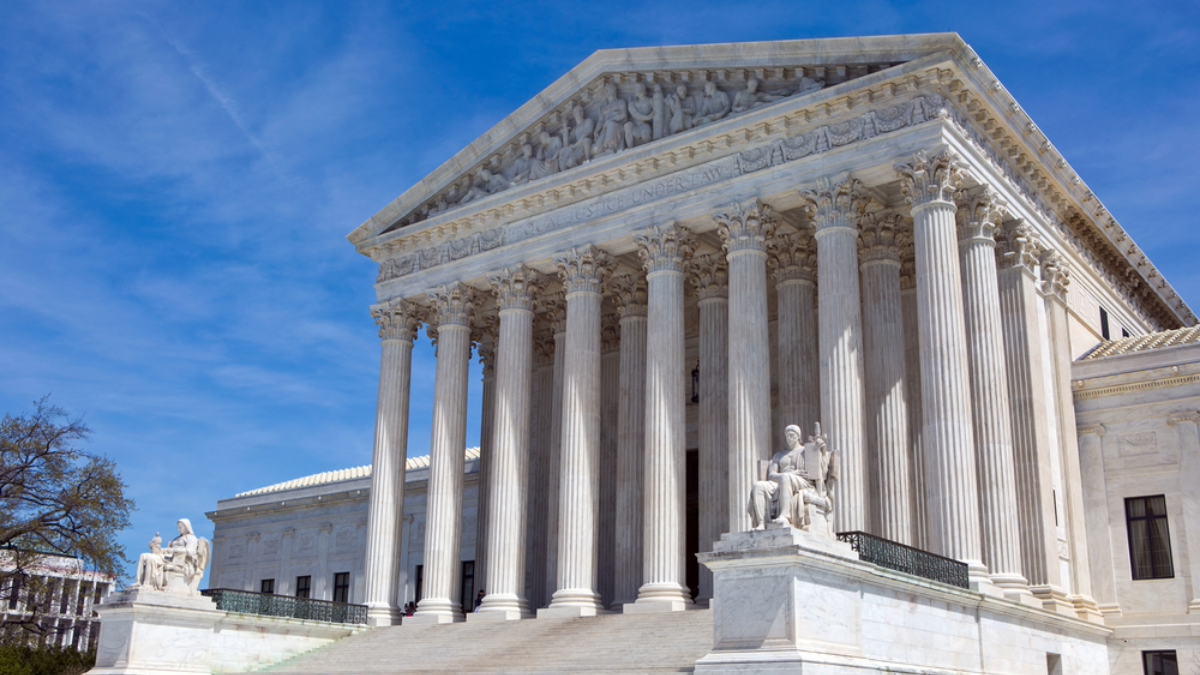Supreme Court Ruling Shifts Ground on Online Age Verification and Free Speech
Ben Lennett, Cristiano Lima-Strong / Jun 27, 2025
The Supreme Court in Washington, DC. Shutterstock
Today, the US Supreme Court ruled in favor of the state of Texas in a case involving a law that requires age verification on websites that provide access to sexual content. Signed in June 2023 by Texas Gov. Greg Abbott (R), House Bill 1181 requires websites that distribute adult material to use “reasonable” methods to verify that users accessing their services are 18 or older. While aimed at pornographic content, the restriction applies to sites where more than a third of what they distribute is deemed “sexual material harmful to minors.” The law also requires pornographic sites to display health warnings about their content to users.
The Free Speech Coalition, a trade association representing the adult entertainment industry, sued to block the law in August 2023 and secured a preliminary injunction against it just days before the measure was set to take effect the following month. The group publicly argued that the law would impose “invasive and burdensome” requirements that pose “significant privacy risks for adult consumers” of adult content.
Federal judge David Ezra ruled at the time that while Texas had “a legitimate goal in protecting children from sexually explicit material online,” the law violated the First Amendment partly because there are “more effective and less restrictive” ways to accomplish that goal. In response, Texas Attorney General Ken Paxton (R) appealed the decision, and the Fifth Circuit later sided with the state in upholding the law’s core age verification requirement, while deeming its health warning requirements unconstitutional as a form of compelled speech. The Free Speech Coalition appealed that decision, and the Supreme Court agreed to take up the case last year.
The Supreme Court upheld the Texas law, holding that it “triggers, and survives, review under intermediate scrutiny because it only incidentally burdens the protected speech of adults.” In the majority opinion delivered by Justice Clarence Thomas, the court determined that H.B. 1181 was not “unconstitutional under the Free Speech Clause of the First Amendment.” The opinion affirmed that “The power to require age verification is within a State’s authority to prevent children from accessing sexually explicit content.”
As a result, more states will likely move forward with online-porn measures that restrict children’s access, particularly in Republican-led states. Congress may also move forward with its own similar legislation. However, the decision could also have significant implications for the debate surrounding children’s safety on social media. In the past few years, states have passed dozens of measures aimed at expanding protections for children on digital platforms, with some similarly requiring that sites screen users by age. Many of those measures have faced legal setbacks, with tech industry groups successfully arguing in many instances to courts that the measures infringe on speech and privacy.
Now the Supreme Court appears to have shifted that legal ground both for states and the federal government. By applying intermediate scrutiny to the Texas law, the court determined that Texas’s age-verification requirements for adult sites “advances important governmental interests unrelated to the suppression of free speech and does not burden substantially more speech than necessary to further those interests.”
In a dissenting opinion, Justice Elena Kagan, joined by Justice Sonia Sotomayor and Justice Ketanji Brown Jackson, pushed back on the majority's use of intermediate scrutiny, arguing that the court should have asked the additional question of whether the law was the least restrictive means of achieving the State’s objective, as required under strict scrutiny. “[W]hat if Texas could do better—what if Texas could achieve its interest without so interfering with adults’ constitutionally protected rights in viewing the speech H.B. 1181 covers? That is the ultimate question on which the Court and I disagree,” the opinion argued.
But in applying intermediate scrutiny, the majority opinion sidestepped that question, marking a pivotal moment in the balance between protecting children online and safeguarding adults’ First Amendment rights. It may also open the door for both states and the federal government to have broad discretion over what constitutes obscene speech with regard to children. The Court’s decision in Free Speech Coalition v. Paxton now sets the stage for continued legal battles over just how far the Federal government and states can go in regulating children’s access to digital content.
Authors

